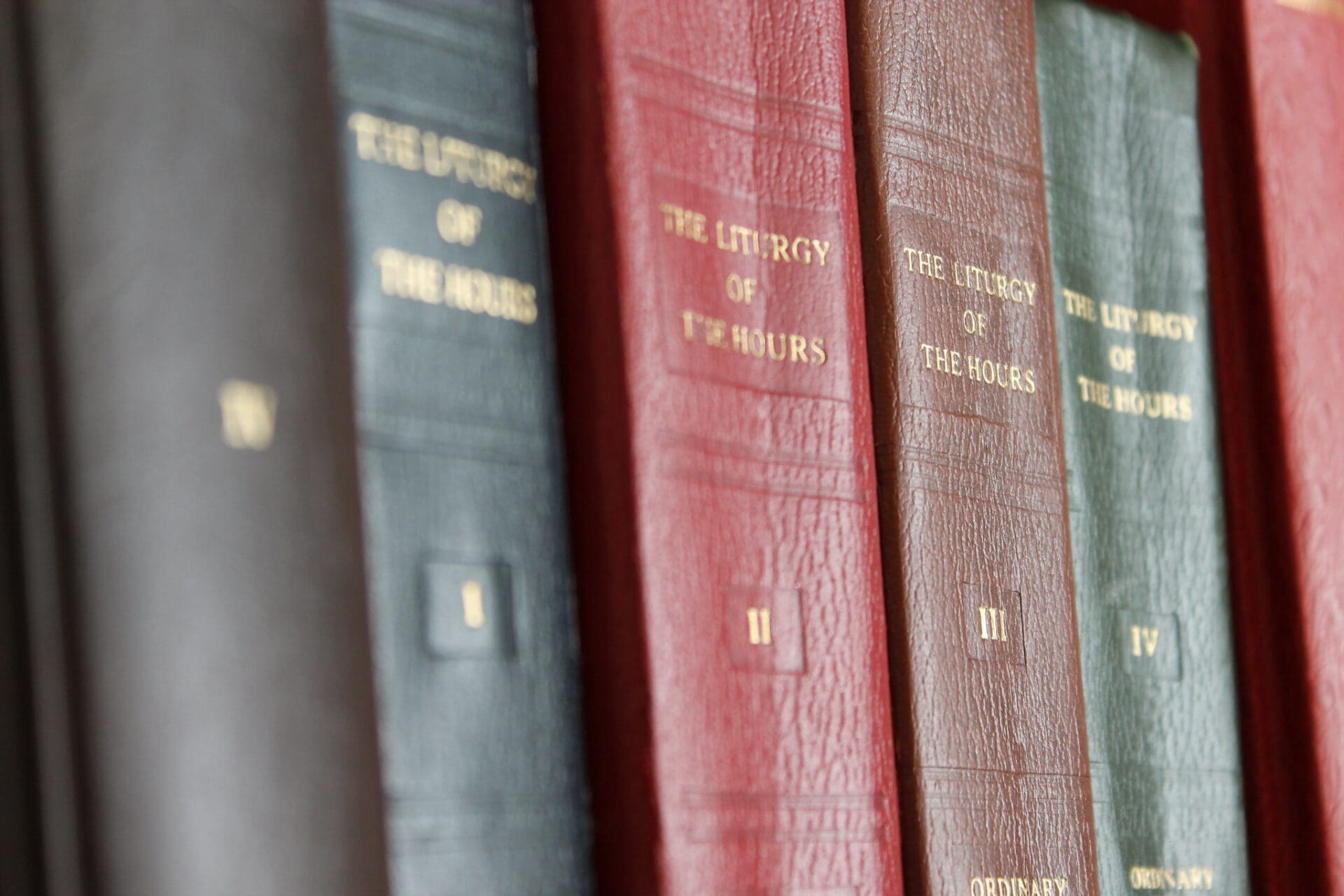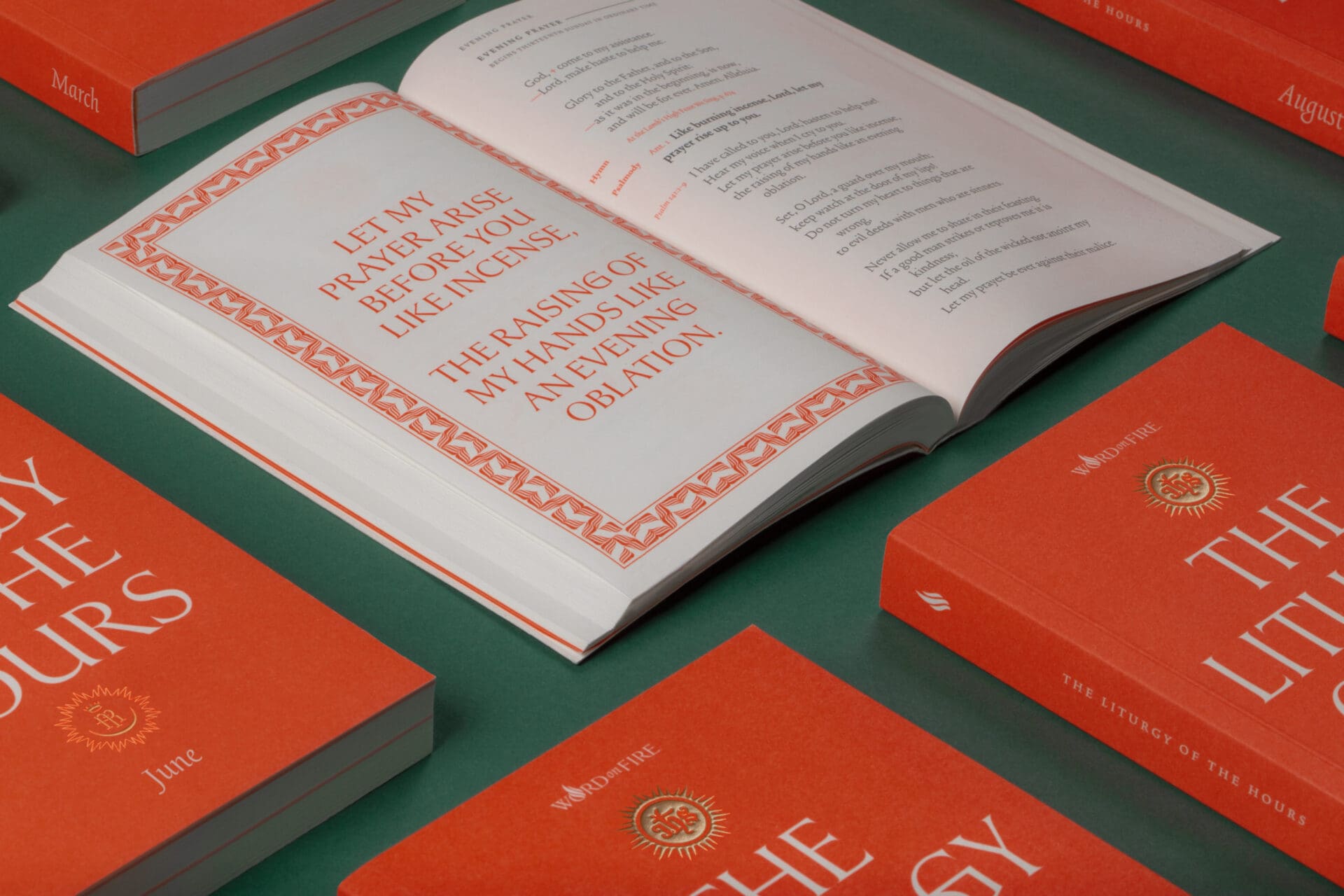“Let everything that breathes praise the LORD!” (Psalm 150:6). Sacred Scripture encourages and commands us to praise the Lord God and to pray without ceasing. Our response to these words of Scripture finds its expression not only in the Mass and celebration of the sacraments, but also in the Divine Office, better known as the Liturgy of the Hours. A new English translation of the second typical edition of the book has been in preparation since the bishops of the United States approved a scope of work for the project in November 2012.
The project has taken longer than anticipated, but now the Liturgy of the Hours, Second Edition is moving closer to completion. The Secretariat of Divine Worship provides here an update on the progress of revisions, translations, and approvals of the various categories of material that comprise the book.
Antiphons, Intercessions, and Other Ecclesiastical Texts
Since 2014, the International Commission on English in the Liturgy (ICEL) has completed translations of material from various sections of the Divine Office, each in fascicle form: Proper of Time, the Four-Week Psalter, Proper of Saints, Commons, and Office for the Dead. These fascicles included antiphons for the Benedictus and Magnificat, Intercessions, and concluding prayers. The United States Conference of Catholic Bishops (USCCB) consolidated these texts into collections that were approved by the bishops in June 2018 and June 2021. In May 2021 ICEL transmitted to its member Conferences of Bishops a new translation of the Ordinary, the section of the breviary that outlines each of the hours and provides commonly used texts. This marked the completion of the retranslation work the USCCB requested of ICEL in its scope of work for the project. However, ICEL is now finalizing one last fascicle, containing corrections of errors and other suggestions for modification that were not part of the scope of work. For example, the Second Readings from the Office of Readings are not being retranslated, but there are various errors that need to be corrected in the body of those texts. That fascicle is expected later in 2022.
The USCCB is responsible for preparing proper texts for the various saints and blesseds inscribed in the U.S. calendar. While there are concluding orations for all these celebrations, some of them—including Sts. Damien de Veuster, Junípero Serra, and Kateri Tekakwitha—currently lack Second Readings for the Office of Readings. The Secretariat has been consulting with the Holy See and with relevant religious communities to find texts to propose which fill these lacunae. The USCCB is also responsible for any adaptations that the bishops might wish to make to the ritual book. The Committee on Divine Worship is expected to begin its review of proper texts and possible adaptations this year, with a possible vote from the body of bishops in 2023.
Hymns
Initially, ICEL transmitted to the Conferences translations of hymns section by section, as a part of the fascicles mentioned above, alongside Intercessions and other texts. But later ICEL opted to make further editorial adjustments to the hymns and then compiled all 294 of them into a single fascicle in June 2019. The body of bishops approved that text at the November 2019 plenary meeting, and it was confirmed by the Holy See in May 2020. The USCCB and ICEL are currently working on a hymnal that will contain the entire corpus of hymns of the Divine Office, set to both metrical and plainsong melodies. The publication of the book is expected toward the end of 2022 or sometime in 2023 by USCCB Communications.
Sacred Scripture
Texts from the Bible in the liturgical books are the responsibility of each Conference of Bishops. In the United States, an updated version of the Revised Grail Psalms was approved by the USCCB in November 2014, followed by a translation of Old and New Testament canticles in June 2015. Both were confirmed by the Holy See in May 2018, and subsequently joined together as The Abbey Psalms and Canticles. They were promulgated by USCCB Communications in February 2020 for optional liturgical use upon publication, and this translation will be used for all the psalms and canticles throughout the breviary.
All longer and shorter Scriptural readings in the Divine Office will be taken from the planned liturgical Bible for use in this country, based on a definitive update of the New American Bible Revised Edition. That project is under the direction of the USCCB Doctrine Subcommittee on the Translation of Scripture Text. It is not clear how long it will take to finalize the entire Bible, but it is hoped that all the passages included in the Liturgy of the Hours can be completed and approved by the end of 2023.
Conclusion
In summary, ICEL has nearly finished its part of the work on the new edition of the Liturgy of the Hours. The USCCB should finalize the remaining non-Scriptural elements of the book in the coming year. The last piece to be completed will be the Scripture, and it is hoped that all the necessary votes of the body of bishops will have taken place by the end of 2023. Afterward, the various texts will be assembled and transmitted to the Congregation for Divine Worship and the Discipline of the Sacraments for confirmation. The publication process can only begin when that confirmation is received. Taking these factors into consideration, the current estimate is that printed books could be available in 2025. Further updates on the progress of the project will continue to be posted at USCCB.org/prayer-and-worship/liturgy-of-the-hours/liturgy-of-the-hours-second-edition.
–From the January 2022 BCDW Newsletter
Image Source: Saint Joseph on Flickr


